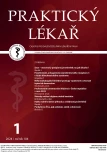-
Medical journals
- Career
Non-pharmacological treatment procedures used in patients suffering from dementia
Authors: I. Ondriová; T. Fertaľová; L. Hadašová
Authors‘ workplace: Vedúca: PhDr. Terézia Fertaľová, Ph. D. ; Dekanka: doc. PhDr. Štefánia Andraščíková, Ph. D., MPH ; Katedra ošetrovateľstva ; Fakulta zdravotníckych odborov Prešovskej univerzity v Prešove
Published in: Prakt. Lék. 2024; 104(1): 17-21
Category: Of different specialties
Overview
Dementia is a serious neurodegenerative disease that leads to a decline in some neuronal populations. As a result, higher cognitive functions are affected, such as memory, thinking, orientation, comprehension, counting, learning, speech, and judgment. Appropriate medical and nursing care using various strategies can, to a certain extent, compensate for the affected cognitive functions and maintain the quality of life of the patient with this disease. Dementia therapy is based on two interacting pillars – non-pharmacological procedures and pharmacotherapy.
Keywords:
cognitive functions – dementia – Alzheimer‘s disease – compensation of cognitive functions
Sources
- Holmerová I, Janečková H, Vaňková H, Veleta P. Nefarmakologické přístupy v terapii Alzheimerovy demence a praktické aspekty péče o postižené. Psychiatr prax. 2005; 6(4): 175–178.
- Janečková H, Vacková M. Reminiscence. Praha: Portál 2010 : 581–583.
- Králová M. Demencie. UK Bratislava: Lekárska fakulta 2017.
- Prince M, Bryce R, Albanese E, et al. The global prevalence of dementia: a systematic review and metaanalysis. Alzheimers Dement. 2013; 9(1): 63–75.e2.
- Bártlová S, a kol. Zdravotní gramotnost u vybraných skupin obyvatelstva Jihočeského kraje. Praha: Grada Publishing 2018.
- Benjamin MB. Starnutie a staroba. Benjan 2017.
- Birnbaum S, Hanchuk H, Nelson M. Therapeutic doll play in the treatment of a severely impaired psychiatric inpatient: dramatic clinical improvements with a nontraditional nursing intervention. J Psychosoc Nurs Ment Health Serv. 2015; 53(5): 22–27.
- Blatný M. Psychologie celoživotního vývoje. Praha: Univerzita Karlova, Karolinum 2016; 45–48.
- Procházková E. Práce s biografií a plány péče. Praha: Mladá fronta 2014.
- Tävel P. Validačná terapia. Ostium 2014 [online]. Dostupné z: http://www.ostium.sk/sk/validacna-terapia/ [cit. 2024-02-15].
- Böhm E. Psychobiographisches Pflegemodell. Wien – München – Bern: Verlag Wilhelm Maudrich 2009.
- Fertaľová T, Ondriová I. Demence – nefarmakologické aktivizační postupy. Praha: Grada Publishing 2020;
- Franková V. Demence u Alzheimerovy choroby. Psychiatr prax. 2017; 18(1): 30–33.
- Pokorná A, Sukupová M. Validace podle Naomi Feil v geriatrické péči. Praha: Kontakt 2014; 16(2): 88–96.
- Tokovská M. Podporné skupiny pre príbuzných pacientov s Alzheimerovou chorobou. Via pract. 2016; 13(4): 160–162.
- Turner F, Shepherd M. Doll therapy in dementia care: a review of current literature. Communicare 2014; 1(1): 1–17.
- Feil N, de Klerk-Rubin V. Validácia. Cesta, ako porozumieť starým dezorientovaným ľuďom. Bratislava: OZ Terapeutika 2015.
- Sheardová K. Alzheimerova nemoc a zapojení pečovatele do boje o kvalitu života. Neurol. Praxi. 2010; 11(3): 171–174.
adresa pre korešpondenciu:
PhDr. Iveta Ondriová, Ph.D.
Fakulta zdravotníckych odborov PU
Partizánska 1, 080 01 Prešov, SR
e-mail: iveta.ondriova@unipo.skLabels
General practitioner for children and adolescents General practitioner for adults
Article was published inGeneral Practitioner

2024 Issue 1-
All articles in this issue
- Snus – the new and former support agent: for how long?
- Fezolinetant, the neurokinin 3 receptor antagonist in the treatment of vasomotor symptoms in perimenopause
- Non-pharmacological treatment procedures used in patients suffering from dementia
- Occupational diseases reported in the Czech Republic in 2023
- Methods of measuring limb oedema volume: a literature review
- Risk of sudden cardiac attack and the number of push-ups managed
- Purkyne’s Review Živa – its Foundation, Fall and Renewal
- Eponyma v medicíně aneb po kom to slovo je
- General Practitioner
- Journal archive
- Current issue
- Online only
- About the journal
Most read in this issue- Fezolinetant, the neurokinin 3 receptor antagonist in the treatment of vasomotor symptoms in perimenopause
- Snus – the new and former support agent: for how long?
- Methods of measuring limb oedema volume: a literature review
- Risk of sudden cardiac attack and the number of push-ups managed
Login#ADS_BOTTOM_SCRIPTS#Forgotten passwordEnter the email address that you registered with. We will send you instructions on how to set a new password.
- Career

